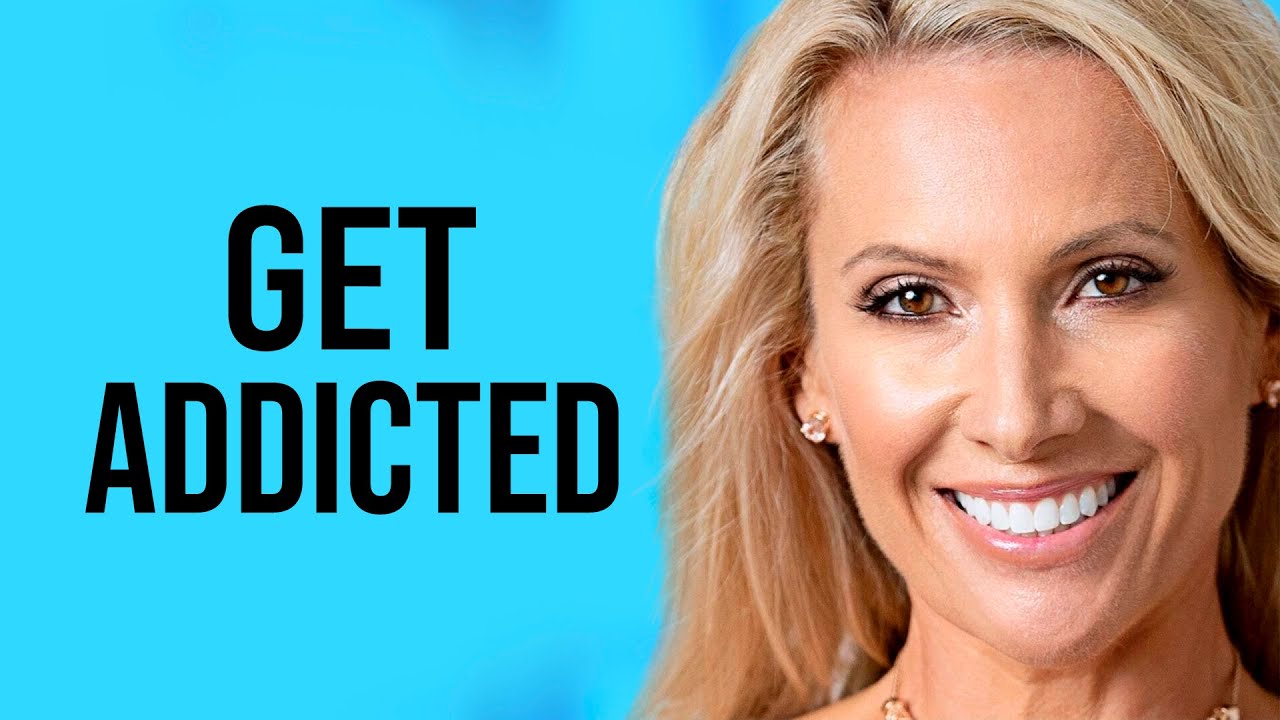*****
Summary of Transcript:
The video features an interview with Olympic silver medalist Datsy Bausch. The interviewer brings up the level of discipline anorexics possess and how it can transfer to achieving great things in other areas of life. She started cycling at age 26 as suggested by her therapist, to help her recover from anorexia. Cycling became a crucial part of her healing process, and she found it to be a way to replace her obsession with training from her previous disorder. Daisy admits that suffering was a huge part of her success in cycling, and it fueled her to push past barriers and reach her goals. She notes that cycling provided hope because it always had an end, and something good would come out of it, unlike her previous battles with anorexia.
*****
Summary of Description:
In the Impact Theory episode, Olympic silver medalist Dotsie Bausch shares her story of addiction and how she channeled it toward productive outlets. She discusses how suffering can breed drive and how everyone is addicted to something. Bausch shares her experience battling body dysmorphia and anorexia and how discipline helped her overcome her struggles. She also discusses how she redirected her addiction towards cycling and how pushing herself always led to growth. Overall, Bausch emphasizes the power of healing and improvement by linking the mind and body.
*****
Addiction: How to Harness It into a Strength with Olympian Dotsie Bausch
Addiction is a delicate subject that affects everyone, and Olympic silver medalist Dotsie Bausch knows this firsthand. In a recent episode of Impact Theory, Bausch joined Tom Bilyeu to explore the depths of addictive habits and show how individuals can take control of their addictions and re-aim them toward new-productive outlets.
Beginnings
Bausch shares her story of how she first picked up cycling. At first, she saw it as a way to lose weight quickly, but as she further explored cycling, the sport became her new passion.
Suffering
Bausch has dealt with severe body dysmorphia and anorexia throughout her life. There’s a tie between discipline, routine, and body image for her. However, she found that field also crossed with another passion, cycling.
Sickness
Bausch explains how she points her pain towards hardcore training. Cycling has given her a new focus, making suffering an easier pill to swallow.
The Other Side
Bausch shares how she overcame anorexia and ‘flipped ‘the coin.’ After realizing that she was only hurting herself, she went through a healing process of self-acceptance and became much stronger.
Addiction
Bausch explains how relinking the mind and body leads to powerful healing. Addiction is all-consuming because of the power of the mind and the body’s bodies.
Fear
Bausch shares how her addiction was a double-edged sword; it was her best friend and worst enemy. Many people are afraid of entering the ‘darkness’ that is addiction.
Cycling
Bausch discusses how she began to point out her obsession with cycling. Cycling challenged her physically and mentally, which was the perfect outlet for her addictive tendencies.
Miles
Bausch shares how she went from inexperienced in cycling to ‘Olympic ‘ready.’ Her drive and persistence fueled her ability to push herself further.
Go Harder
Bausch discusses why she kept pushing herself in pursuit of greatness. She knew that to be the best; she needed to go as hard as possible.
Compete
Bausch discusses being competitive with oneself versus others. She realized that you can’t concan’twhat others do, but you can control your actions.
The Darkness
Bausch shares what it means to ‘go to an ‘eep dark place.’ Every individual has the power to get through the challenges associated with addiction, but it’s not its path.
Growth
Bausch reveals how improvement is always the reward for pushing yourself. Stepping outside one’s comone’szone and going beyond boundaries only leads to growth.
Anger Stick
Bausch shares her story of using an anger stick to release emotions. This tactic allowed her to channel her negative energy into something more positive.
Hindsight
Bausch discusses how her story is filled with times of not giving up. It’s essential to note that addiction can not be fixed quickly. It takes time, persistence, and the willingness to try new things.
In conclusion, addiction is something that plagues individuals worldwide. However, Bausch Bausch’sowcases how addiction, when channeled properly, can lead to strong growth and productivity. Individuals can harness their addictions and use them to their advantage with discipline, persistence, and a little courage.
*****
Source Description
Addiction. Where does it originate from, what keeps us returning to feed it, and how can we leverage it into a strength? On this episode of Impact Theory, Olympic silver-medalist Dotsie Bausch joins Tom Bilyeu to discuss such matters and explore the full depth of addictive habits to show how you can take control of your addictions and re-aim them towards new-productive outlets.
They speak about the drive that suffering breeds, the other side of addiction and pain, how we are all addicted to something, how Dotsie re-aimed her addictive tendencies towards cycling, the impact therapy had on her life, why you shouldn’tshouldn’td to enter ‘the darkness,’ and how pushing yourself always leads to growth.
SHOW NOTES:
Beginnings | Dotsie shares her story of first picking up cycling. [0:31]
Suffering | Dotsie discusses body dysmorphia, anorexia, and how discipline ties in. [2:54]
Sickness | Dotsie discusses how she pointed her pain towards hardcore Olympic training. [5:53]
The Other Side | Dotsie shares how she overcame anorexia and ‘flipped ‘the coin.’ [8:52]
‘addiction | Dotsie discusses how relinking the mind and body leads to powerful healing. [13:22]
Fear | Dotsie shares how her habits were her best friend and worst enemy. [16:42]
Cycling | Dotsie discusses how she began pointing out her obsession with cycling. [20:00]
Miles | Dotsie shares how she went from inexperienced in cycling to ‘Olympic ‘ready.’ [24:26]’Go Harder | Dotsie discusses why she kept pushing herself to achieve greatness. [27:02]
Compete | Dotsie discusses being competitive with oneself versus others. [30:25]
The Darkness | Dotsie shares what it means to ‘go to an ‘eep dark place.’ [32:55]’ Growth | Dotsie reveals how improvement is always the reward of pushing yourself. [36:56]
Anger Stick | Dotsie shares her story of using an anger stick to release emotions. [37:59]
Hindsight | Dotsie discusses how her story is filled with times of not giving up. [42:46]
QUOTES:
“I k”ew that I loved cycling, and it would take suffering. I had learned that much, and so I was going to have to get good at suffering.” [28:22]” When you”think that you are broken, and you couldn’t go another step, you’re on you’re off the way there.” [33:46]” I knew t”ere was no way to getting better unless I got pretty damn uncomfortable almost every single time.” [35:46]”FOLLOW DOTSIE:
Nonprofit: https://switch4good.org
Instagram: https://bit.ly/301JiWK


Comments are closed